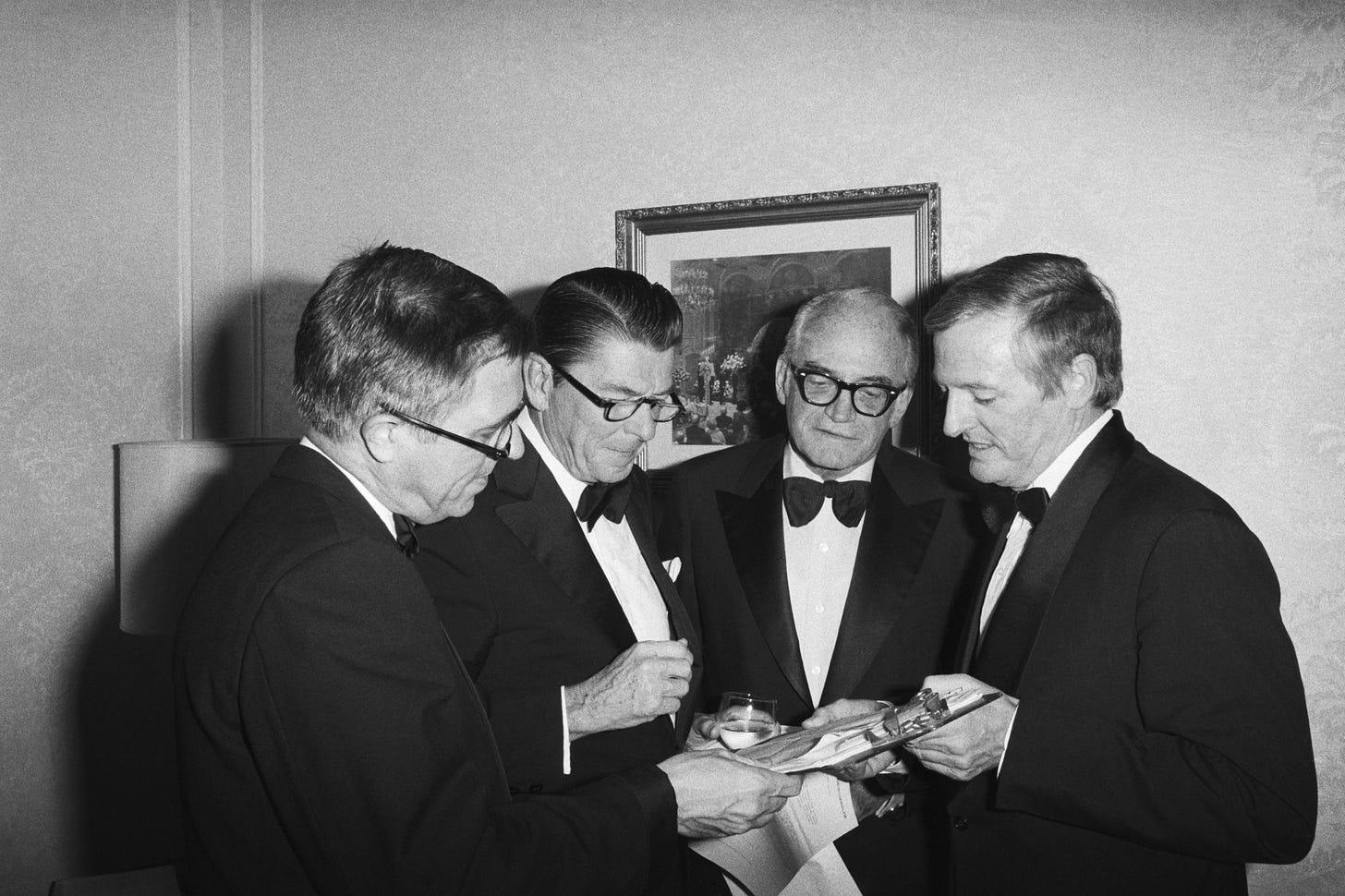The Retreat to Principles
Leading members of the anti-populist center-right have issued a “statement of principles.” They’d be better off showing in more detail where their judgment leads them

Last week, 83 writers, intellectuals, and academics on the center-right signed their names to a document titled “Freedom Conservatism: A Statement of Principles.” I’m friendly with and respect several of the people involved in the project, so I don’t want to be a party pooper. And indeed, nothing the authors or signatories claim to stand for strikes me as dangerous or a threat. It’s a libertarianish restatement and subtle updating of the “fusionist” ideology Frank Meyer fashioned in the pages of National Review in the decade following its launch in 1955 and William F. Buckley codified in the “Sharon Statement” of 1960, to which the new statement alludes in its opening sentences.
Yet I nonetheless dissent from the new statement of principles—because it assumes what the center-right needs is a statement of principles. As I’ve argued before, I think principles are overrated. They’re aspirations. General statements of ideals. Those are good things. But politics isn’t usually about issuing pious declarations, however noble. It’s about looking at the world and its problems and responding to them with intelligence, which often means with pragmatic flexibility. It’s about exercising judgment—about which problems are most pressing, about which can be solved or at least alleviated, and about how best to go about doing so.
The collapse in support for the center-right and consequent surge of support for right-wing populists like Donald Trump since 2016 is far more a reaction to the poor judgment displayed by the administration of George W. Bush and the presidential nominees who followed him (John McCain and Mitt Romney) than it is about a failure to uphold principles that now need to be reaffirmed. In fact, believing that principles are what matter most of all may have contributed in a significant way to the bad judgment calls that brought us to this point.
To illustrate the singular importance of judgment and limitation of appeals to principle, I’m going to make this post a point-by-point critical response to “Freedom Conservatism: A Statement of Principles.” I should note that on a few points, I develop the objections advanced by Ilya Somin in his own smart, critical response to the statement—though he and I are often coming from different places. (As a libertarian, Somin often wants the authors of the statement to be more consistently principled, whereas I usually think they’d be better off doing the opposite.)
Keep reading with a 7-day free trial
Subscribe to Notes from the Middleground to keep reading this post and get 7 days of free access to the full post archives.




